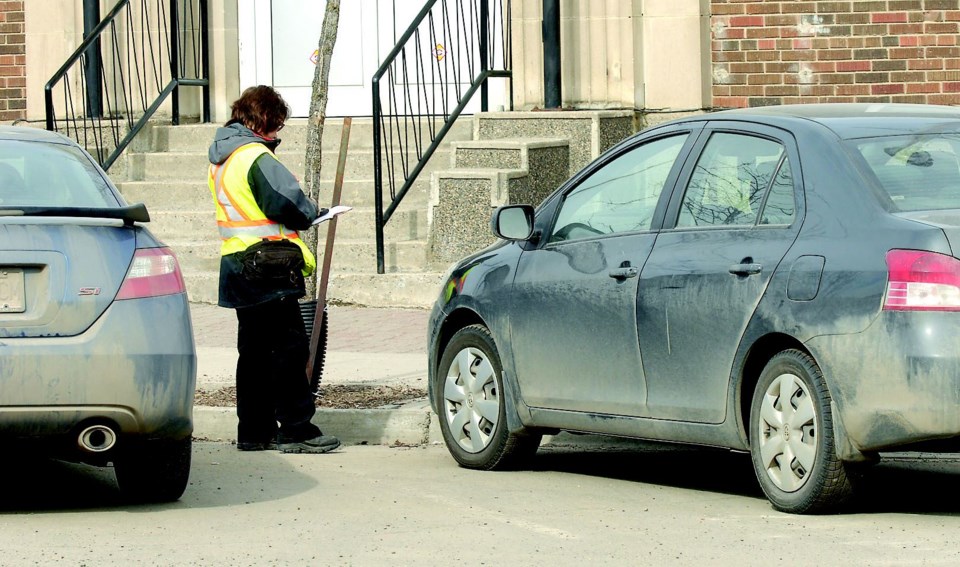A new way of dealing with minor bylaw infractions is in the works.
City council gave staff the go-ahead Monday night to take initial steps towards implementing a process designed to take disputes over such matters as parking, animal control, business licensing, garbage storage and noise out of the courts.
Instead, they would be brought before an adjudicator, whose role would strictly be to either uphold or dismiss the alleged infraction.
"The adjudicator has no discretion to reduce or waive the fine amount like a provincial court justice does," planning and development general manager Ian Wells said in a report to council.
"The decision of the adjudicator is final and the act does not allow for appeals; however the disputant would still have the ability to seek relief in the Supreme Court of British Columbia."
As it stands, disputes that land in court are heard by a justice of the peace on a circuit basis and can be both time consuming and expensive, both for city hall and the person fighting the ticket.
The city currently pays about $200 per hour for a lawyer to prepare court documents, review files and represent the city in court. And trials require testimony from investigators, witnesses and the accused or their representatives.
Speaking to council, bylaw services manager Fred Crittendon said court dates are set by a trial coordinator in the Lower Mainland and the amount of time made available to the city is limited.
"We have one before the courts right now that the tickets were actually issued just about a year ago and we have a trial later in August, finally after a number of delays," Crittendon said.
In another example, Crittendon said an elderly woman reluctantly agreed to testify in a case against an owner of an allegedly noisy dog, only to see the matter put off for a three months because the justice of the peace was too busy that day.
Fees for adjudication are legislated by the provincial government. Adjudicators cost $400 per day or $200 per half-day, plus travel expenses and the city would be responsible for paying the bill.
Offenders must pay a fee of up to $25 per ticket if found valid by an adjudicator.
Crittendon said the idea would be to hold a day of hearings every three or four months.
The process is made possible through provincial legislation enacted in 2003. Since then, more than 70 communities ranging from large cities to regional districts and villages have adopted the process.
"We do know that there are certified adjudicators in Prince George that are being utilized in other communities as part of a pool of adjudicators," Crittendon said.
Those fighting a ticket from the city would no longer facing having to take a day off from work, and hearings can be held over the phone or via teleconference, he also noted. As for the city, there would be fewer instances where it would drop a matter simply because the infraction is too minor to pursue in the courts and focus exclusively on repeat offenders who've run up a number of violations.
The process also features steps to prevent an issue from ending up before an adjudicator. A handful of current staff in bylaw services would be designated as screening officers who would decide whether it's worth taking a matter to an adjudicator. The screening officer would have the authority to cancel a ticket if it's found the allegation did not occur, or the required information is missing from the notice.
An offender could also be given the option of entering a compliance agreement that would set out remedies and timelines for the contravention to be dealt with.
The agreement can be rescinded if the conditions are not met and, in that instance, the offender can still file for adjudication.
Council members roundly supported the initiative.
"This seems like a win all the way around," Coun. Garth Frizzell said. "It's closer, it's fairer and it will reduce our expenses and increase our revenues."
Staff was authorized to draft a bylaw and go through the formality of asking the Ministry of Attorney General to add the city to the province's bylaw notice enforcement regulation.



